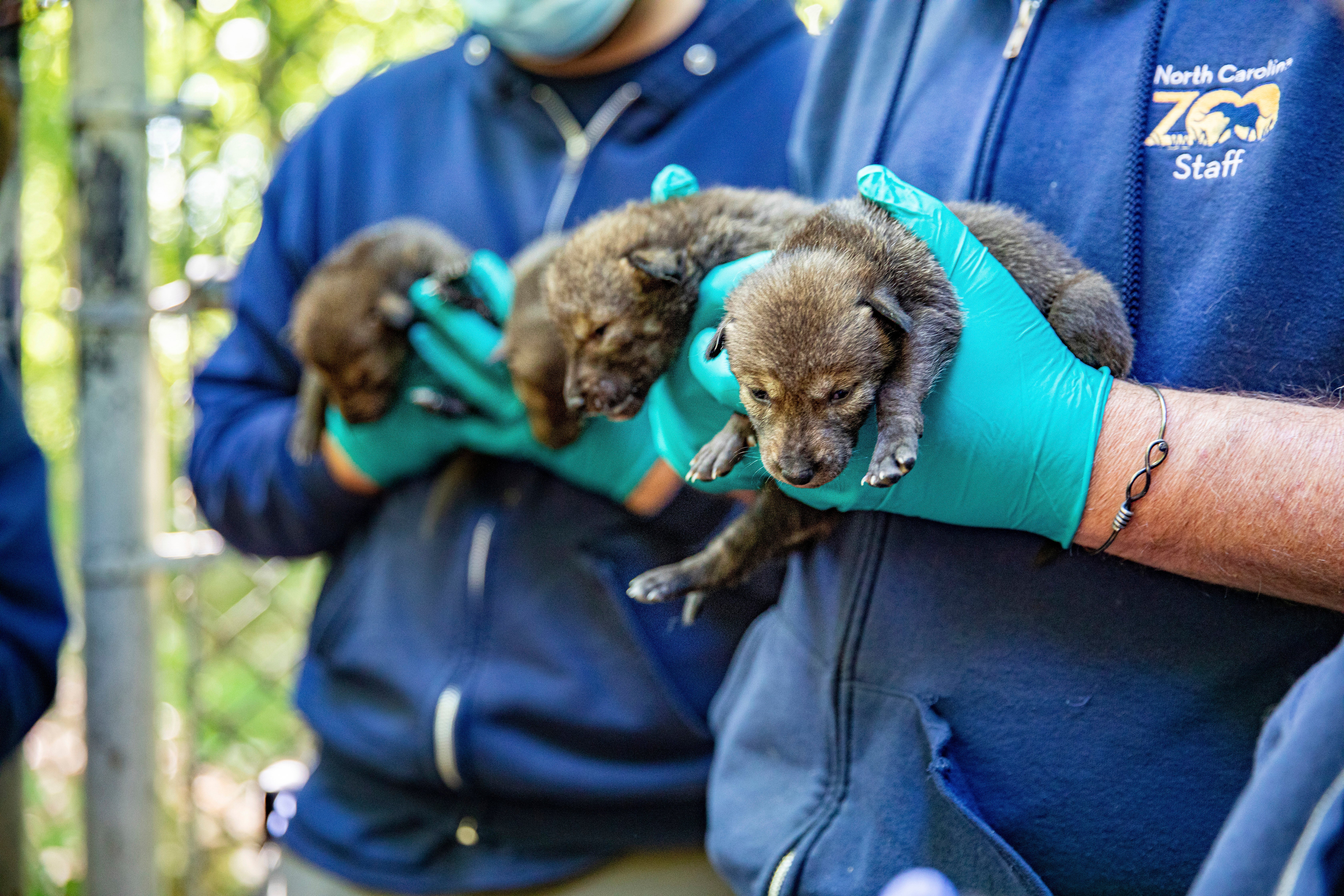Endangered red wolves born at North Carolina Zoo, doing well
The North Carolina Zoo has announced the birth of three litters of American red wolves, which are critically endangered and number less than two dozen in the wild

Your support helps us to tell the story
From reproductive rights to climate change to Big Tech, The Independent is on the ground when the story is developing. Whether it's investigating the financials of Elon Musk's pro-Trump PAC or producing our latest documentary, 'The A Word', which shines a light on the American women fighting for reproductive rights, we know how important it is to parse out the facts from the messaging.
At such a critical moment in US history, we need reporters on the ground. Your donation allows us to keep sending journalists to speak to both sides of the story.
The Independent is trusted by Americans across the entire political spectrum. And unlike many other quality news outlets, we choose not to lock Americans out of our reporting and analysis with paywalls. We believe quality journalism should be available to everyone, paid for by those who can afford it.
Your support makes all the difference.Three litters of American red wolves, which are critically endangered and number less than two dozen in the wild, have been born at the North Carolina Zoo, officials announced Monday.
The zoo said in a news release that the litters, which total 12 pups, were born over three days at the end of April. According to zoo officials, all the pups and their mothers are healthy and doing well.
The newest pups bring the total number of red wolves currently in the zoo’s breeding program to 36, making it the second-largest pack in the U.S. after Point Defiance Zoo and Aquarium in Tacoma Washington according to the North Carolina Zoo.
Zoo officials said only 15 to 20 red wolves remain in the wild, all in eastern North Carolina. They’re considered the most endangered canid in the world.
For the first time in two decades, one litter was born on the red wolf public habitat. The pups most likely will be visible starting in mid-June, when they begin to venture outside of the den, according to the news release.
The wolf family will be moved to the non-public breeding area when the pups are older and weaned from their mother. The other two litters were born in non-public viewing areas of the zoo, officials said.
An announcement on a public naming poll for one of the litters will occur within the next month, the zoo said.